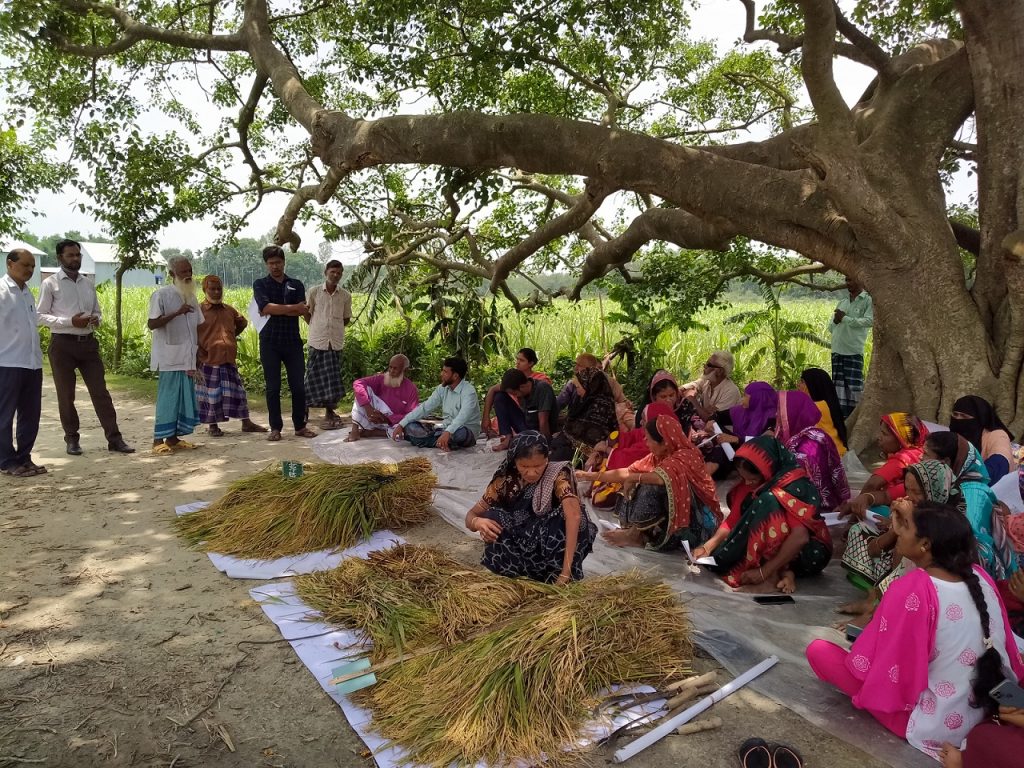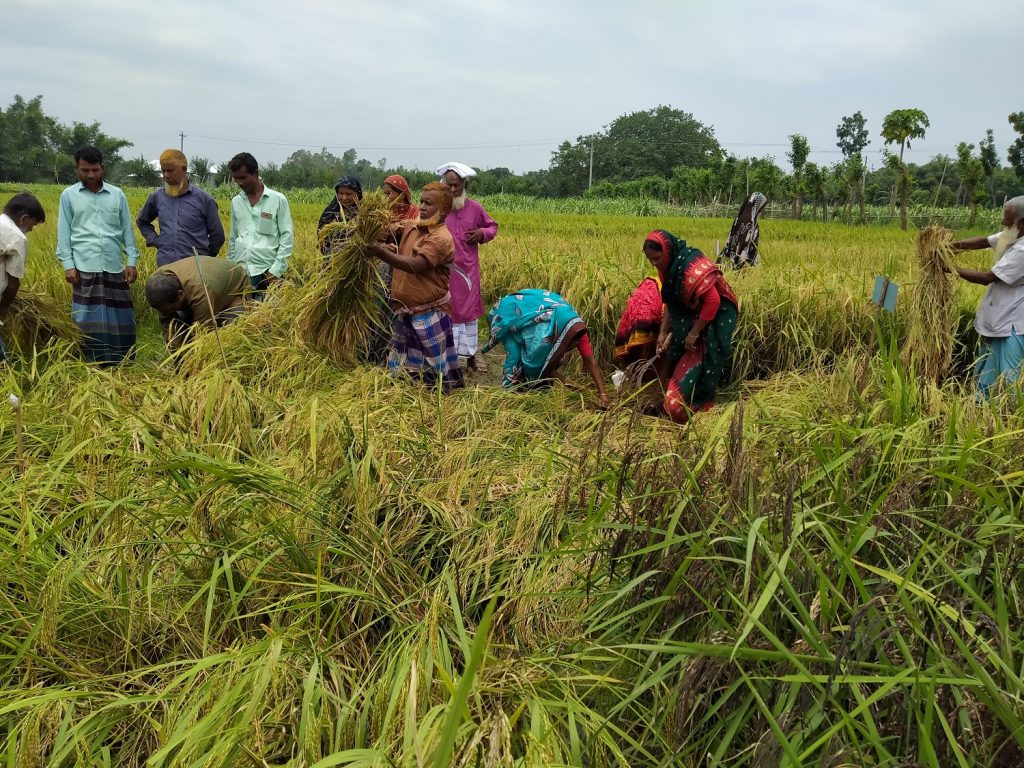Beauty Sorkar from Singhair, Manikganj,
BARCIK and farmers’ organization of Nayabari organized a field day recently in Singair upazila. The field day was organized to examine and exhibit the crops cultivated by framers through their farmers’ led applied research initiatives. More than half a hundred farmers from 12 villages of Baira, Baldhara, Jamsa and Talibpur Union of Singair Upazila participated in the field day and 26 farmers were able to select the rice variety in accordance with their choice which according to them are suitable to local climate.
The farmers of Nayabari village of Singair upazila have experimently cultivated 15 local rice varieties to examine which rice are performing well considering the local climate and soil. The research initiative is a part of farmers’ action to find out locally adaptable rice varieties that produce good yields as well. However, the farmer organization has organized a field day to share the results of the research with the people of the area. Assistant Agricultural officer of the area Kazi Ferdous participated as guest in the event. Besides, Regional Coordinator of BARCIK Bimal Roy, Program Coordinator Shimul Biswas and other BARCIK officials in Manikgonj were present in the said field day.

At the beginning of the program, Ibrahim Miah, the supervisor of the research plot, discussed about the objective of the applied research saying, “Our country was full of many kinds of life. There were thousands of rice seeds in the past. But we are losing them while using modern technology. Therefore, it is our responsibility to protect the varieties that still survive. Because seeds are our existence, and we have rights to have our own seeds.’ ‘This research helps farmers reduce production costs and market dependence, adapt to climate change, and manage natural resource-based and environmentally friendly agriculture,” said Shimul Biswas, program coordinator of the BARCIK in Manikgonj. While Bimal Roy, regional coordinator of BARCIK, urged everyone to save and conserve seeds so that farmers can combat the changes due to climate.

Deputy Assistant Agriculture Officer Kazi Ferdous thanked BARCIK for assisting the farmers in the farmer-led applied research program. Besides, he advises the farmers to cultivate and conserve sustainable and local varieties of crops to cope with the climate induced changes. The president of Nayabari Farmers’ Organization, farmer Iman Ali, urged farmers to reduce their dependence on companies and choose and preserve their own varieties. By participating in the field day, some farmers selected some 8 varieties of crop which are according to the research result are suitable for the area and adaptable to climate. These farmers expressed their willingness to cultivate these 8 varieties of rice in the fields in the next season.
Translated by Silvanus Lamin
